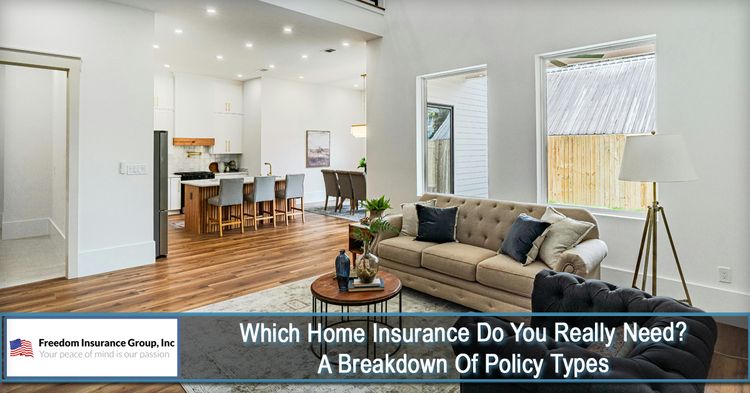
When it comes to protecting your home, one size doesn’t fit all. Home insurance policies come in several forms, each designed to meet different needs based on the type of property, level of risk, and how much protection you want. Whether you’re a homeowner, condo owner, or renter, understanding the types of home insurance policies can help you make an informed choice—and avoid costly surprises later.
1. HO-1: Basic Form
- What it covers: The most limited form of home insurance.
- Covers only specific perils, typically:
- Fire and lightning
- Windstorm or hail
- Explosion
- Theft
- Vandalism
- Damage from vehicles or aircraft
Note: Very few insurers offer HO-1 today due to its limited protection.
2. HO-2: Broad Form
More coverage than HO-1, still based on named perils.
Adds protection for:
- Falling objects
- Weight of snow or ice
- Accidental water discharge
- Sudden tearing or cracking of systems (e.g., HVAC)
- Freezing of plumbing
- Power surges
Good for budget-conscious homeowners looking for expanded but affordable coverage.
3. HO-3: Special Form (Most Common)
- Most popular policy for single-family homeowners
- Covers your home on an “open-peril” basis (everything except what’s specifically excluded)
- Contents (personal property) are still covered on a named-peril basis
Common exclusions:
- Earthquakes
- Floods
- Intentional damage
- Neglect or wear and tear
Offers the best value for homeowners seeking broad coverage.
4. HO-4: Renters Insurance
- Designed for tenants
- Covers:
- Personal belongings inside the rental unit
- Liability protection
- Loss of use (if the rental becomes uninhabitable)
Your landlord’s policy won’t cover your personal items—this policy fills that gap.
5. HO-5: Comprehensive Form
- Highest level of home insurance protection
- Covers both dwelling and personal belongings on an open-peril basis
Advantages:
- Higher coverage limits
- Lower deductibles on claims
- Fewer restrictions on valuables
Ideal for high-value homes or homeowners seeking top-tier coverage.
6. HO-6: Condo Insurance
- Specifically for condo owners
- Covers:
- Interior walls, floors, and ceilings
- Personal property
- Liability and loss of use
- Improvements or upgrades made inside the unit
Exterior of the building is usually covered by the condo association’s master policy.
7. HO-7: Mobile or Manufactured Home Insurance
- Tailored for mobile, manufactured, or modular homes
- Similar in structure to an HO-3 policy but adapted for the risks associated with these home types
Make sure your mobile home is securely anchored to meet coverage qualifications.
8. HO-8: Modified Coverage Form
- Created for older or historic homes where the replacement cost is higher than market value
- Covers the home on a repair cost basis (not full replacement)
- Named-peril only, with limited protection
Perfect for homeowners who want coverage for structurally unique properties with outdated building materials.
Additional Policies You May Need:
While the above are standard policy types, some coverages require separate endorsements or standalone policies:
- Flood Insurance (via NFIP or private carrier)
- Earthquake Insurance
- Umbrella Liability Policy
- Scheduled Personal Property (e.g., jewelry, art)
Final Thoughts
Choosing the right home insurance policy starts with knowing the type of property you own or rent, your budget, and your risk tolerance. While HO-3 remains the most common for homeowners, others like HO-4 and HO-6 cater to renters and condo owners. Each policy serves a purpose—and knowing the difference can save you from unexpected financial loss.
Before you decide, speak to a trusted insurance advisor to ensure your policy meets your needs and complies with your mortgage or HOA requirements.
At Freedom Insurance Group, Inc., we aim to provide comprehensive insurance policies that make your life easier. We want to help you get insurance that fits your needs. You can get additional information about our products and services by calling our agency at 828-322-7474. Get a free quote today by CLICKING HERE.
Disclaimer: The information presented in this blog is intended for informational purposes only and should not be considered as professional advice. It is crucial to consult with a qualified insurance agent or professional for personalized advice tailored to your specific circumstances. They can provide expert guidance and help you make informed decisions regarding your insurance needs.
